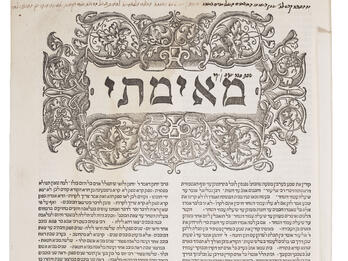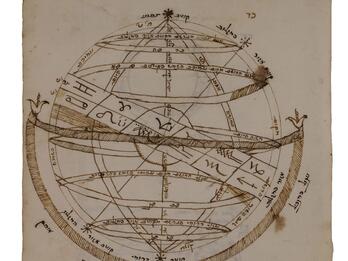The Portuguese Jewish Community of Hamburg
The first Jews to settle in Hamburg were Spanish and Portuguese New Christians from the Netherlands who arrived at the end of the sixteenth century. At first, they kept their religion a secret. When it was discovered that they were practicing Judaism, some Hamburg residents demanded their expulsion. However, the city council was aware that the Jews could offer a significant financial contribution to the city and thus they were permitted to remain, paying hefty annual taxes in return for their protected status. They engaged in finance, shipbuilding, and importing, and they also worked as weavers and goldsmiths. Three synagogues were established in Hamburg, and in 1652, by which time there were around six hundred Jews there, they united as Beth Israel. Despite this, the Jews were required to bury their dead in a cemetery in nearby Altona. The community was deeply affected by Sabbateanism, and many prepared to sell their homes and depart for the Holy Land. In 1697, the local authorities substantially increased the tax that Jews were required to pay, and this, combined with increasing unrest, led many to leave the city. By 1692, only three hundred Portuguese Jews remained in Hamburg.




